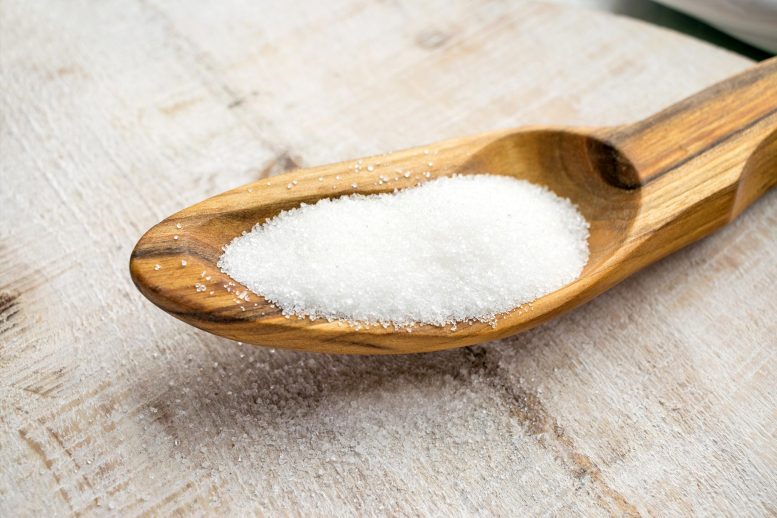
Researchers have found that blends of mineral salts can make noncaloric sweeteners taste more like real sugar. The blend of potassium, magnesium, and calcium salts reduced the lingering sweetness by up to 79% and improved the mouthfeel of 10 noncaloric alternatives, making low- and zero-calorie beverages taste more like their sugary counterparts.
Perfect noncaloric replacements for sugar and high fructose corn syrup just don’t exist yet. For instance, some substitute options leave a lasting sweet taste in the mouth and do not replicate the texture of sugar, resulting in dissatisfaction among consumers.
However, a study recently published in the Journal of Agricultural and Food Chemistry suggests that incorporating combinations of nutritionally valuable mineral salts can enhance the similarity of noncaloric sweeteners to natural sugar. According to taste testers, this approach improved the taste of drinks with zero or low calories.
Sugar substitutes are often used in sodas, baked goods, and frozen desserts, to appeal to people who want lower-calorie or low-sugar treats. But many natural or synthetic noncaloric sweeteners, such as stevia and aspartame, have a delayed sweetness, which lasts long after a food or drink is consumed.
These substances also don’t usually have the same mouthfeel as real sugar. Previously, Grant DuBois and colleagues observed that sodium chloride and potassium chloride could accelerate the onset of sweetness and eliminate its persistence for one stevia compound, rebaudioside A.
They hypothesized that the salts compress the mucus hydrogel covering taste buds to allow rebaudioside A molecules to get through and then leave more quickly. However high concentrations were needed to achieve the desired effects, which led to off-tastes. So, the researchers wanted to test other mineral salts on commercially available noncaloric sweeteners to see if the products that they are used in could be improved.
In initial tests with a trained sensory panel, the researchers observed that calcium chloride, magnesium chloride, and potassium chloride each separately reduced the perceived intensity of rebaudioside A after two minutes. However, again, high amounts of mineral salt were needed to lower the intensity by more than 30%, which caused unpleasant saltiness or bitterness sensations. Next, mixing the three taste-modifying salts had synergistic effects, allowing the team to use lower amounts of each for the same effect. A blend of the potassium, magnesium, and calcium salts reduced the lingering sweetness up to 79% and markedly increased the sugar-like mouthfeel of 10 noncaloric alternatives.
Some panelists still reported a slight saltiness in a few sugar substitute formulations with the all-chloride mineral salt blends. So, the team tested reduced-chloride versions in two commercial zero-calorie colas, resolving the faint salty off-taste issue and greatly improving the taste of the beverages. Additionally, they added salt blends to a reduced-calorie orange juice and a commercial citrus-flavored soft drink made with high fructose corn syrup, which made both beverages taste more like they contained sugar. The researchers say that they have a promising solution for replicating the taste of real sugar in low- and zero-calorie beverages.
Reference: “Replication of the Taste of Sugar by Formulation of Noncaloric Sweeteners with Mineral Salt Taste Modulator Compositions” by Grant DuBois, Rafael San Miguel, Robert Hastings, Pnita Chutasmit and Areerat Trelokedsakul, 7 June 2023, Journal of Agricultural and Food Chemistry.
DOI: 10.1021/acs.jafc.3c01144
The authors are employees of Almendra Americas, LLC and Almendra Thailand, Ltd.; and acknowledge funding from Almendra Thailand, Ltd.
The authors have a U.S. patent on this technology.

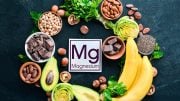

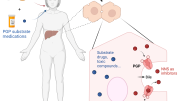
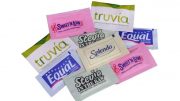

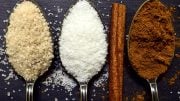
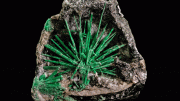

Hi i love blackstrap mollasses i wish there was away to remove the sugar content from the blackstrap mollasses because it is still sweet we do not need the sugar in it hopefully someone will find a way to reformulate rhw blackstrap and remove the sweetness and just keep all the vitamines that it provides thank you have agood day.
“Scientists Crack the Code for Near-Perfect Sugar Substitutes”
When have we heard that before? Every time a new sweet molecule has been discovered, and before it has seen sufficient use to discover the side effects.
The best sugar from Date Palm sap sugar with low GI should be brought back. Looking for interested organization.
Probably a paid promotion of more one product that will causing cancer in a long term! I will continue using the good natural and caloric sugar! Kkkkk
“blend of potassium, magnesium, and calcium salts”
Is this a joke? Aren’t these osmotic laxatives?
I’m not interested in ingesting any newly developed artificial sweeteners. I’ll stick to real food.
What about people who want to gain weight without sugar.